Introduction
- Nursing practices have changed over time.
- In the past, moral command required nurses to choose life (Lachman, 2010).
- However, the current moral dilemma for nurses is to choose life under certain circumstances.
- Today, the emerging trend is to concede moral authority.
- However, conceding moral obligation has responsibilities to nursing profession. Patients and families want to know ‘what ought to be done’ and scientific discipline focuses on ‘what can be done’ .
- Thus, there is a need to determine and separate ‘what ought to be done’ from ‘what can be done’.
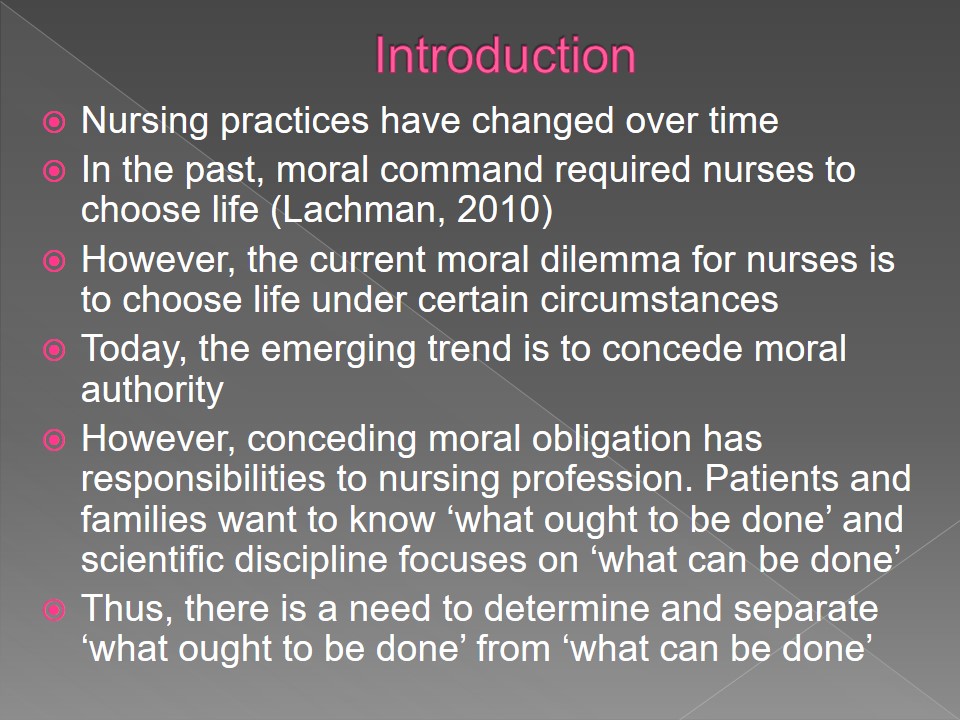
Relating research findings to nursing concepts
- The article raises critical issues of ethics, legal, and policies in nursing practice.
- Do-not-resuscitate (DNR) focused on competent patients to make choice.
- However, surrogate decision-makers and physicians do not involve patients in discussions.
- Discussions are long and patient may lack any mental abilities to decide by then.
- The article points out that nurses should initiate discussions about DNR with patients.
- However, nurses are excluded from DNR processes.
- The article raises critical issues of ethics, legal, and policies in nursing practice.
- Do-not-resuscitate (DNR) focused on competent patients to make choice.
- However, surrogate decision-makers and physicians do not involve patients in discussions.
- Discussions are long and patient may lack any mental abilities to decide by then.
- The article points out that nurses should initiate discussions about DNR with patients.
- However, nurses are excluded from DNR processes.
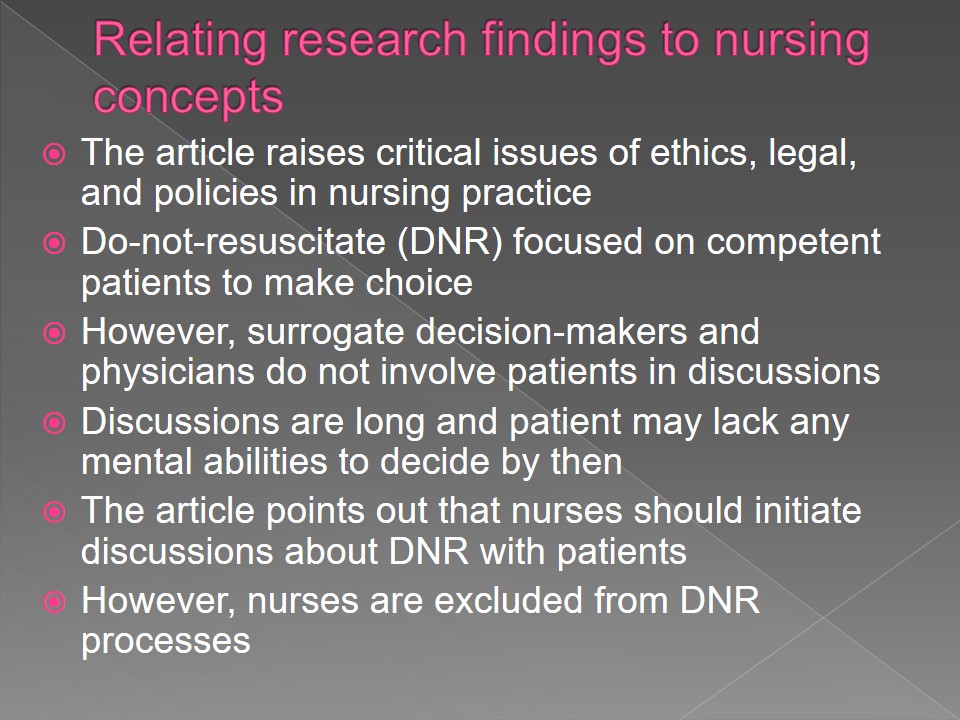
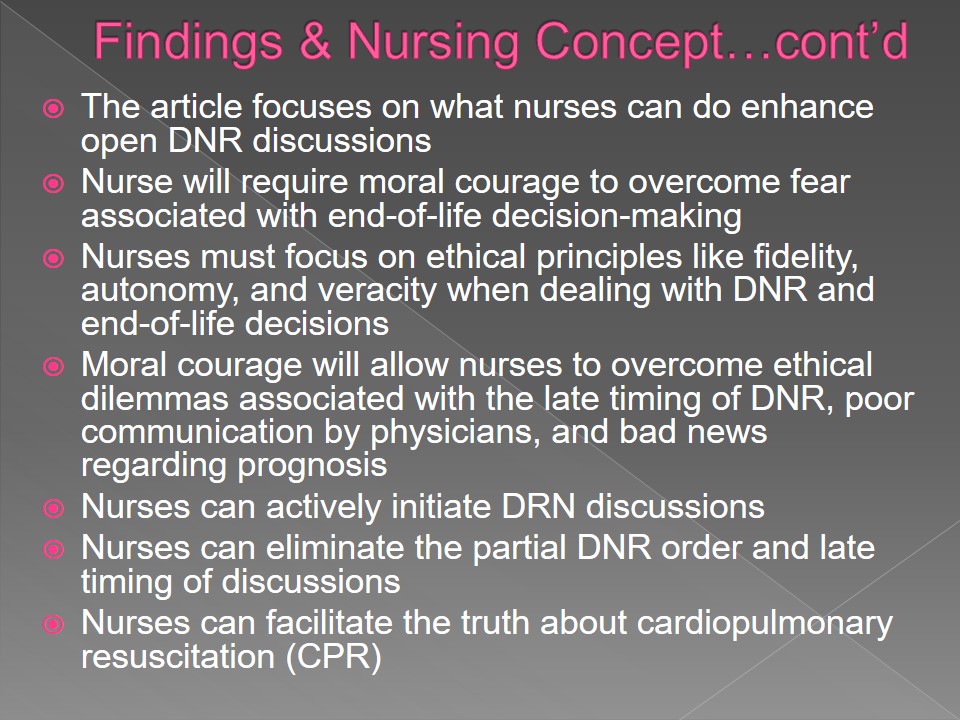
Nursing concepts discussed in the article
- There are emerging trends concerning DNR – conceding moral authority.
- Patients need to state that they do not need CPR clearly.
- The rate of CPR survival has declined.
- Nurses have duties to educate patients and families on CPR and DNR.
- Nurses should help patients and families to participate in DNR discussions with physicians.
- Nurses should take an active role in defining and developing DNR policies and clarifying any confusing terms.
- Partial DNR orders have raised issues of ethical and medical concerns.
- Certain “cardiac DNR only” orders are not suitable for patients.
- There is a need to avoid partial DNR order and adopt a care plan for patients under life-threatening conditions.
- Nurses should support patients by identifying clear goals for care, preferred cognitive and functional abilities, and showing advantages and limitations of all desired interventions.
- Physicians should ensure competence in decision-making and document DNR order.
- Nurses have ethical obligations to guarantee patients and families about discussions and care process for effective decision-making.
- Patients in life-threatening conditions may not gain access to DNR discussion.
- Nurses have moral obligations to advocate for patients and families in such conditions.
- In case physicians fail to initiate discussions, then nurses must have moral courage and initiate meetings.
- Nurses are better at starting DNR discussions with patients and families.
- The term, allowing natural death (AND) should substitute DNR to eliminate confusion among family members because it is direct.
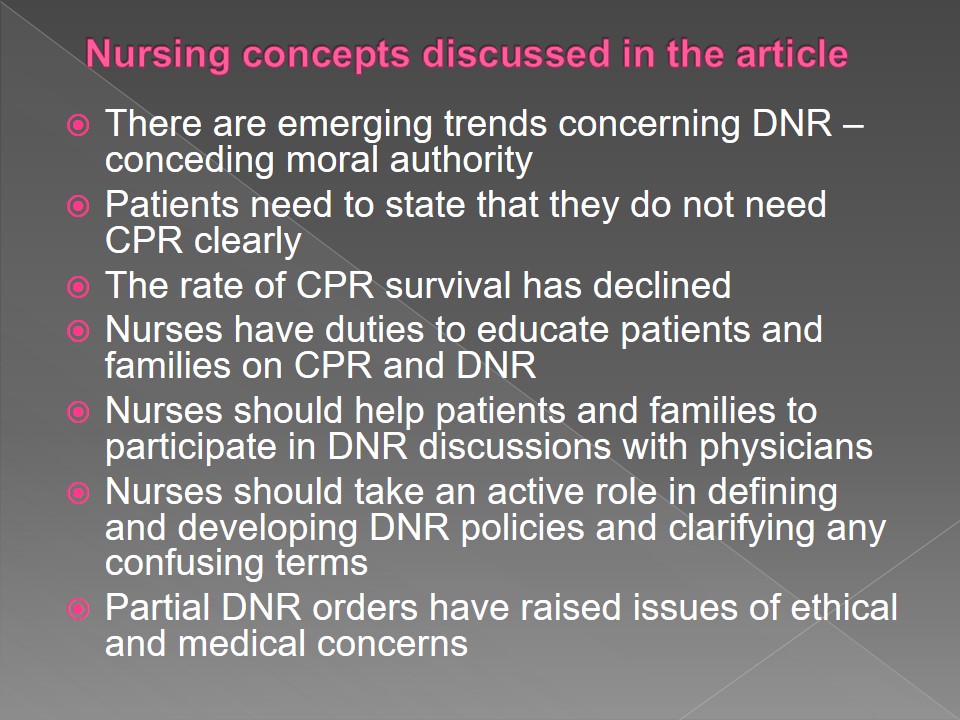
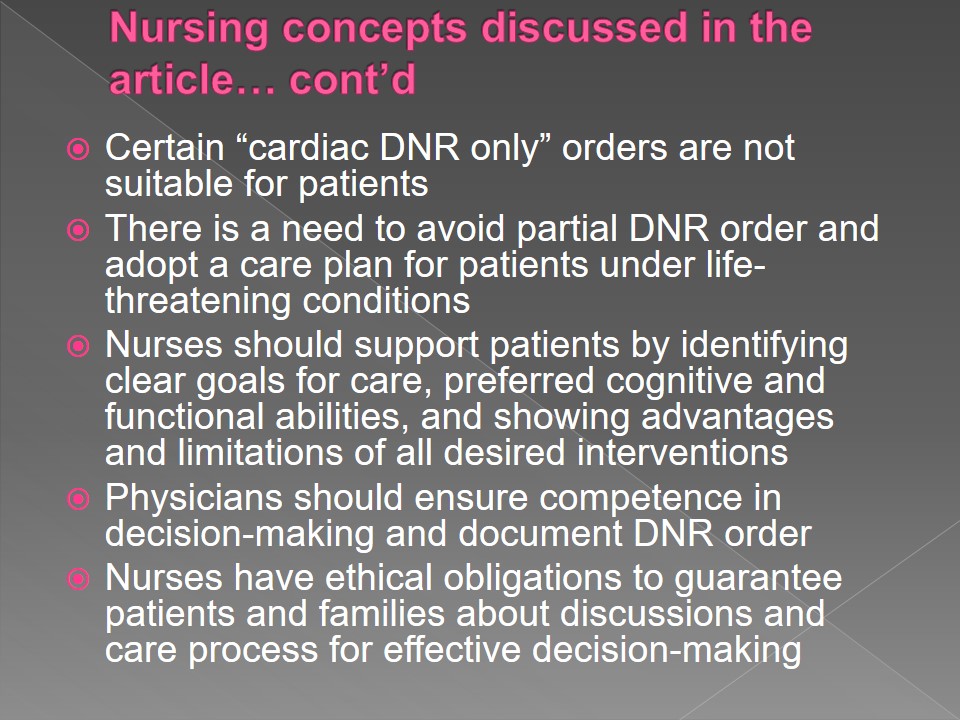
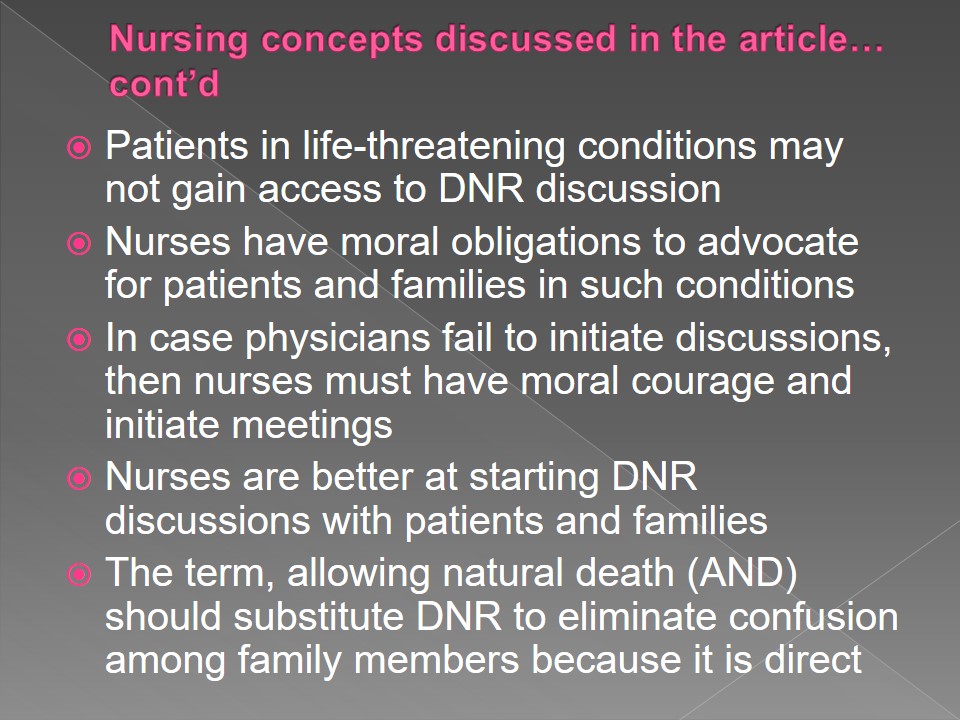
Why the article was chosen
- The article highlights moral challenges and emerging trends that nurses face in DNR.
- It shows that nurses have moral obligations to advocate for patients and families in life-threatening situations.
- It promotes the role of nurses in DNR discussions, preparing and implementing care plans and discussions.
- It indicates that partial DNR orders are not necessary, instead care plans are effective.
- The article shows that nurses are better at initiating DNR discussions than physicians.
- It also shows the need to change DNR to AND to avoid confusion.
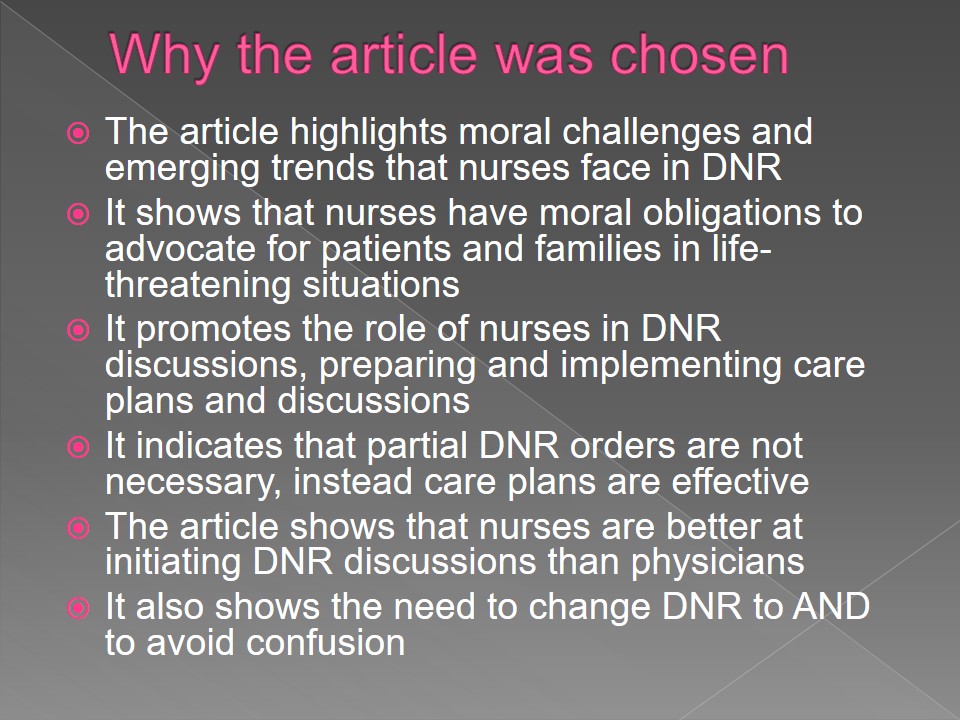
How the nursing concepts described affects nursing practice
- The changing landscape of nursing concepts means nurses must also change their practices.
- Nurses must understand past, contemporary, and emerging practices in DNR alongside moral obligations for effective decision-making in care provision.
- Nurses must understand their moral obligations to their patients and families, if physicians fail to act accordingly.
- Nurses must recognize that they have ethical obligations to facilitate communication to their patients or families.
- They must explain the goal of care, its benefits and drawbacks to patients and families for decision-making.
- Nurses should take part in preparing and implementing care plan to their patients.
- They must also take active role in DRN discussions.
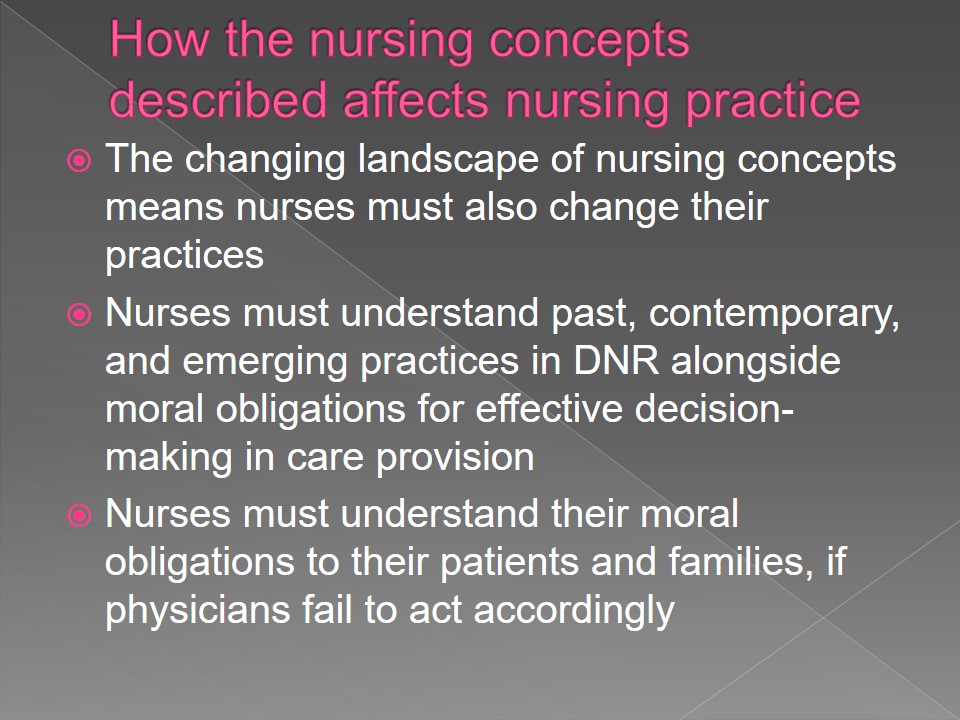
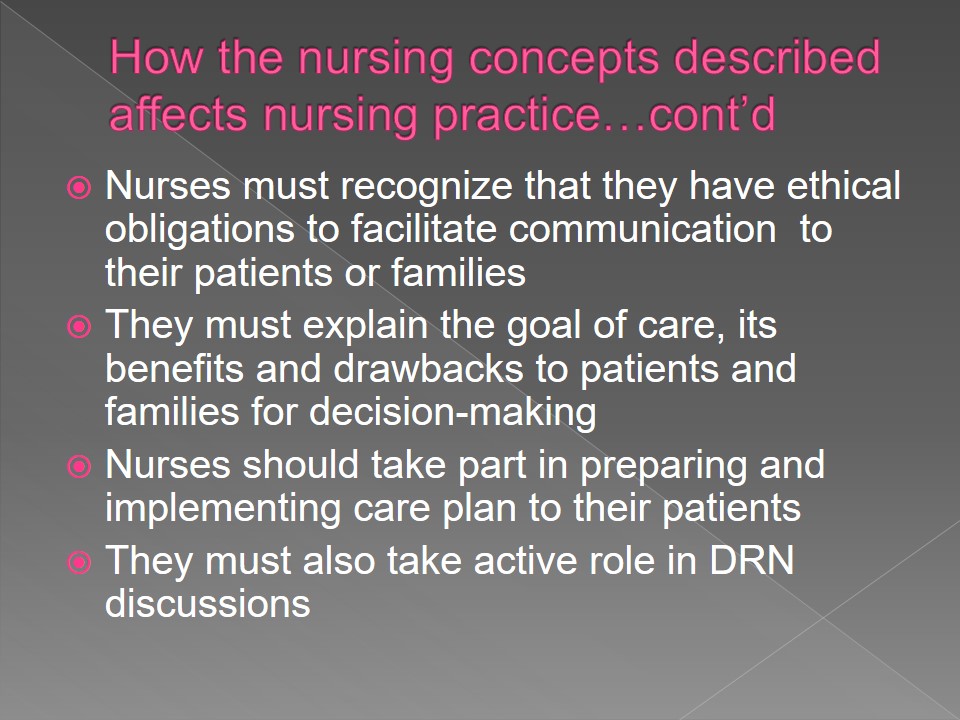
Conclusion
- Nurses have ethical obligations for their patients when making DNR decision.
- However, the practice has changed from choosing life, choosing life under certain conditions, to an emerging trend of ceding moral authority.
- This situation raises issues of ethical, medical, and legal concerns.
- Overall, nurses must facilitate DNR discussions, develop care plan, and advocate for patients and families because they are better in such situations than physicians, but this requires moral courage.
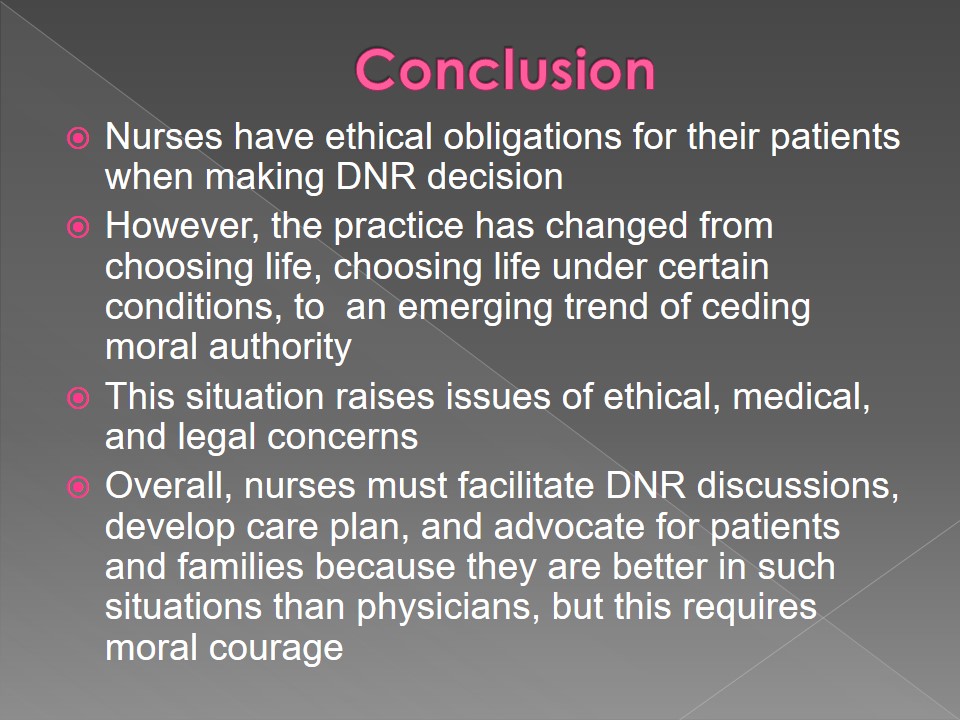
Reference
Lachman, V. (2010). Do-Not-Resuscitate Orders: Nurse’s Role Requires Moral Courage. MEDSURG Nursing Journal, 19(4), 249-251.